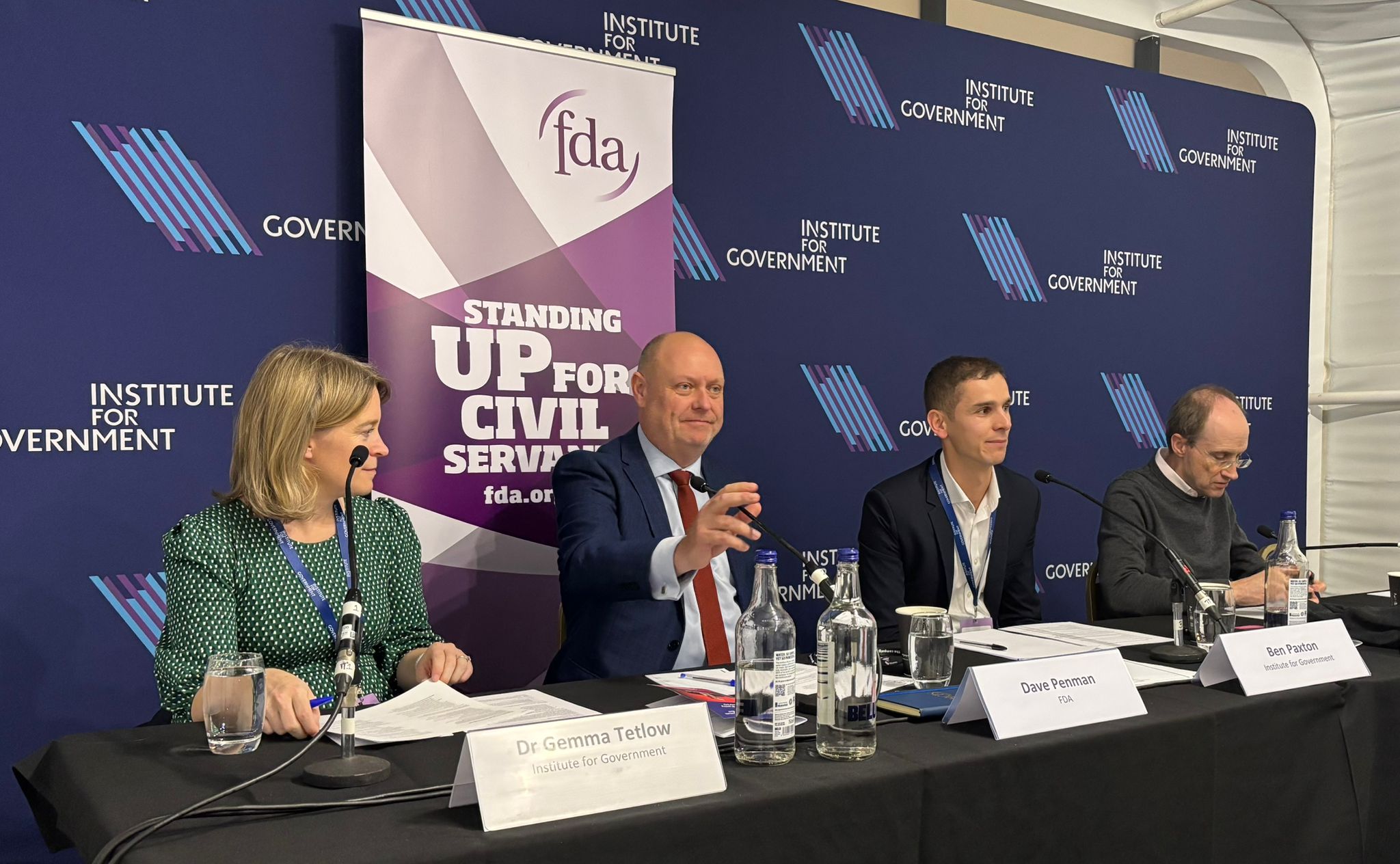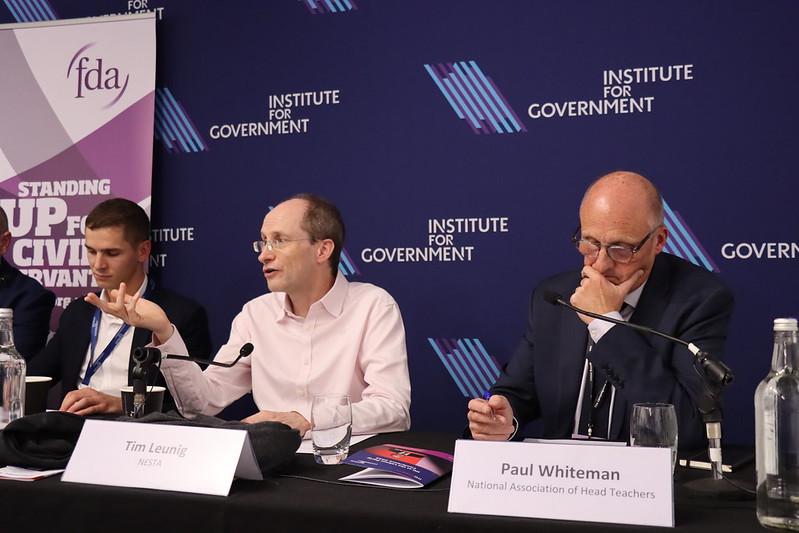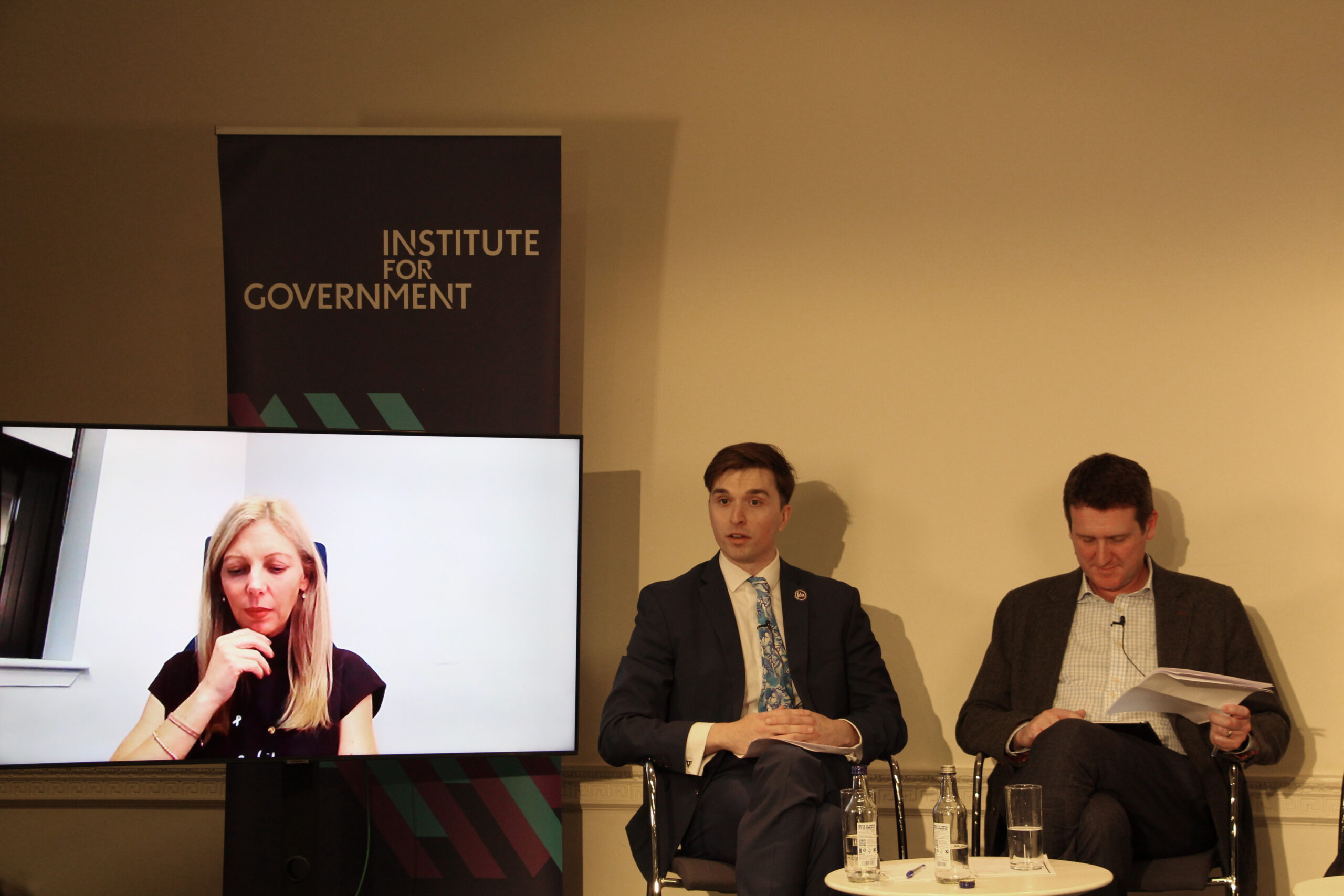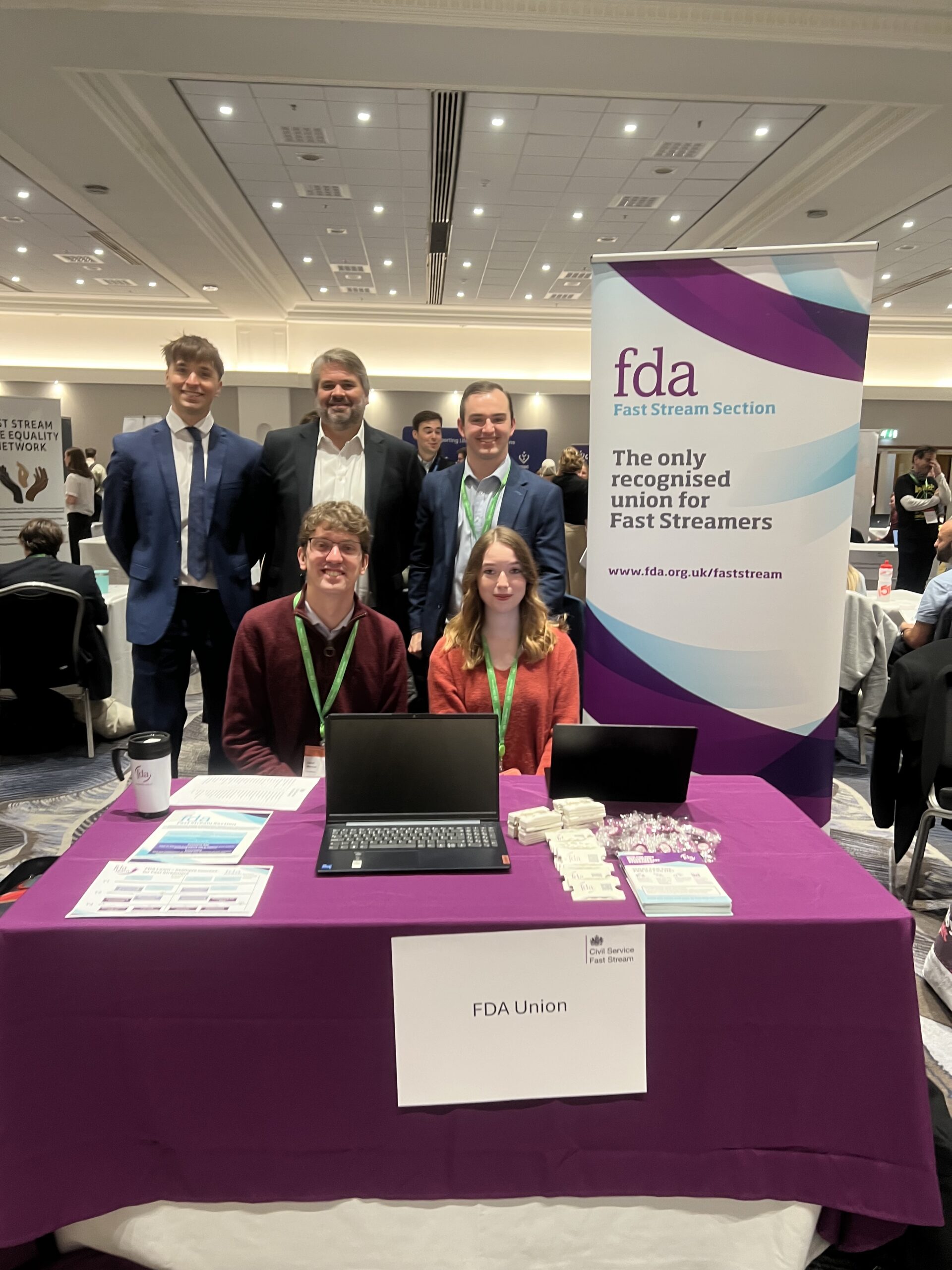Government has “no strategy” on long-term pay and reward issues, says Penman

FDA and IfG hosted a joint fringe event at this year’s Labour Party Conference in Liverpool, discussing ‘Should public sector pay and pensions be reformed?’
FDA General Secretary Dave Penman told an Institute for Government event that the public sector is “blighted” by pay issues, and if the government and employers want to address this by looking to rebalance pay and pensions, there needs to be “strong political will and clear leadership” from ministers. But there is currently “no sense of what this government want to achieve”.
Penman was speaking at the FDA and IfG’s joint fringe event at Labour Party Conference in Liverpool on 30 September. The event was called ‘Should public sector pay and pensions be reformed?’, where Penman was a panellist alongside IfG Chief Economist Dr Gemma Tetlow, Chief Economist at Nesta and former senior civil servant Tim Leunig, and General Secretary of the National Association of Head Teachers Paul Whiteman. Questions posed to the panel focused on hypothetical reforms to the distribution between someone’s pension and their salary as part of their overall benefits package.
Chair of the panel, IfG Senior Researcher Ben Paxton, set out the basis of the discussion:
“For many groups of workers pay levels in the public sector are now uncompetitive when compared with those in the private sector. Yet, public sector pensions are typically much more generous than pay… there are these difficulties with recruitment and retention, which have been longstanding… How can remuneration be set up to best incentivise high-quality public sector workers to join the public sector and stay as productive members of the workforce?”
Penman was clear that you cannot talk about public sector pensions without considering chronic pay issues. Discussing the significant numbers of people who have opted out of their pensions, he said: “I don’t think that’s necessarily people don’t value it. I think it’s… quite often it’s either just economic reality, they can’t afford it and they’ve limited choices, or they don’t understand exactly what the kind of pension provision is”.
Leunig added that civil service pensions are not generous, explain that “it makes no sense to think of one part of remuneration as generous. Either the package is generous or the package isn’t… What we have in the public sector is what is technically called pension-biased remuneration. It’s not that one bit is generous or one bit is mean”.

Whiteman added:
“In education, we’re suffering the same problems of comparatively low pay… pay that’s been eroding over time in real terms and the pension hasn’t really been much of a focus until employers start to say, ‘Well, if we could nick a bit out of our pension contributions and put it towards pay, we might be able to solve our recruitment crisis’.
“Now, there’s no evidence to say that it will… It’s just a way of trying to save some money on one expenditure line and put it into another… there has to be an overall relationship with the full value of your reward package”.
For Penman, the current value of the remuneration package explains why the flexibility to rebalance pay and pensions might be appealing to many public servants:
“Quite often people are making choices to come in and work in the public sector, and are staying for most of their working life and therefore, they build up quite a big pension pot. It’s not where you’re kind of coming in for a few years and you’ve maybe got three or four different pensions in the private sector”.
Penman asked, is that an over-provision for some people? If given the flexibility would some civil servants have a slightly smaller pension in exchange for higher pay at a point in time where they needed more money and cash was more important, would some do it?
As quoted in The Telegraph, Penman said he is always open to discuss pay and pensions with the government, as long as negotiations were in the interests of members and public services.
He said: “Good unions are always prepared to engage and negotiate and that’s what they do. This isn’t just about our individual members – ‘what does their package look like?’ and ‘as a trade union, we’re there to increase their pay and try to protect them’.
However, the FDA General Secretary also outlined the issues with reforms such as these: “I think some of the problems that relate to it are about trust. Most of the time when governments are talking about public sector pensions, it’s in the prism of saying they are very expensive and they’re gold-plated … And so it feels like it’s a government looking to spend less money on public sector pensions, and most of the reforms that have taken place… So…people are going be very mistrustful of that.
“I think to get to a point where you’re having an informed discussion of, ‘Is that package right?’… You’ve got to work quite hard to convince public servants that that’s the nature of the conversation you’re having… it opens up a conversation about what is the right package, and does that suit both individuals, and crucially, does it help with the long-term pay problems that there are in public services? Most of the public services are blighted by issues around pay. The civil service has got huge issues with attracting talent from outside. I mean, it doesn’t compete with the rest of the public sector, never mind the private sector. Could reform… help actually address some of those issues?”
Whiteman agreed, adding: “If we’re going to make changes… I think the most important thing is that we do it together… Any changes that we make are done by agreement rather than imposition, and we don’t simply erode the overall value of the employment package to solve a shorter term problem. We make sure… that we have the provisions going into the future”.
Another issue raised by Penman is that there is no “strong political will” from ministers to address long-term public sector pay issues, and there is currently “no sense of what this government want to achieve”.
He added: “We haven’t got really a strategy either from government thinking about what are those big pay and reward issues, including pensions across the public sector… You cannot do anything on reform and drive a better civil service unless you address the fundamental issues that there are around pay”.
“You would have thought a new government would have come in and had a sense of what they want to achieve? What are the challenges, whether it’s the fiscal rules? What are the difficulties around negotiating a scheme and what that would look like? Are you reducing the value of the entire scheme and improving pay or are you just giving individuals flexibility? If you just give some individuals flexibility, will that address the issues that you’ve got?
“If there is a plan, then most unions will get round the table and they will negotiate and we’ll get a decent deal out of it, particularly if the government’s saying this is about redistribution rather than cutting. I think our biggest challenge is not the detail, it’s not the fiscal rules – it is no strategy from the government.”
Whiteman felt that “we have to finally accept that public sector workers should be expensive… Whenever we get into this debate, we’re always talking about controlling employment costs rather than coming up with a remuneration system that’s suitable and then working out how much that costs and whether it’s a reasonable cost”.
Latest news
-

Retention and reward for the Fast Stream
Robert Eagleton, the FDA’s National Officer for the Fast Stream, outlines why retention and pay parity are the key issues for Fast Streamers.
-

FDA calls for pay parity on IfG panel discussing Fast Stream reform
FDA National Officer for the Fast Stream Robert Eagleton took part in the Institute for Government’s (IfG) panel event, ‘How can the Fast Stream deliver more for the civil service?’.
-

FDA at Fast Stream Base Camp 2025
FDA Fast Stream reps have been in Birmingham for Fast Stream Basecamp, welcoming new first year Fast Streamers, speaking to them about the union’s work and how to get involved.